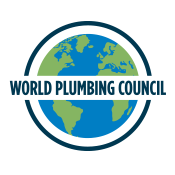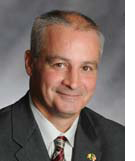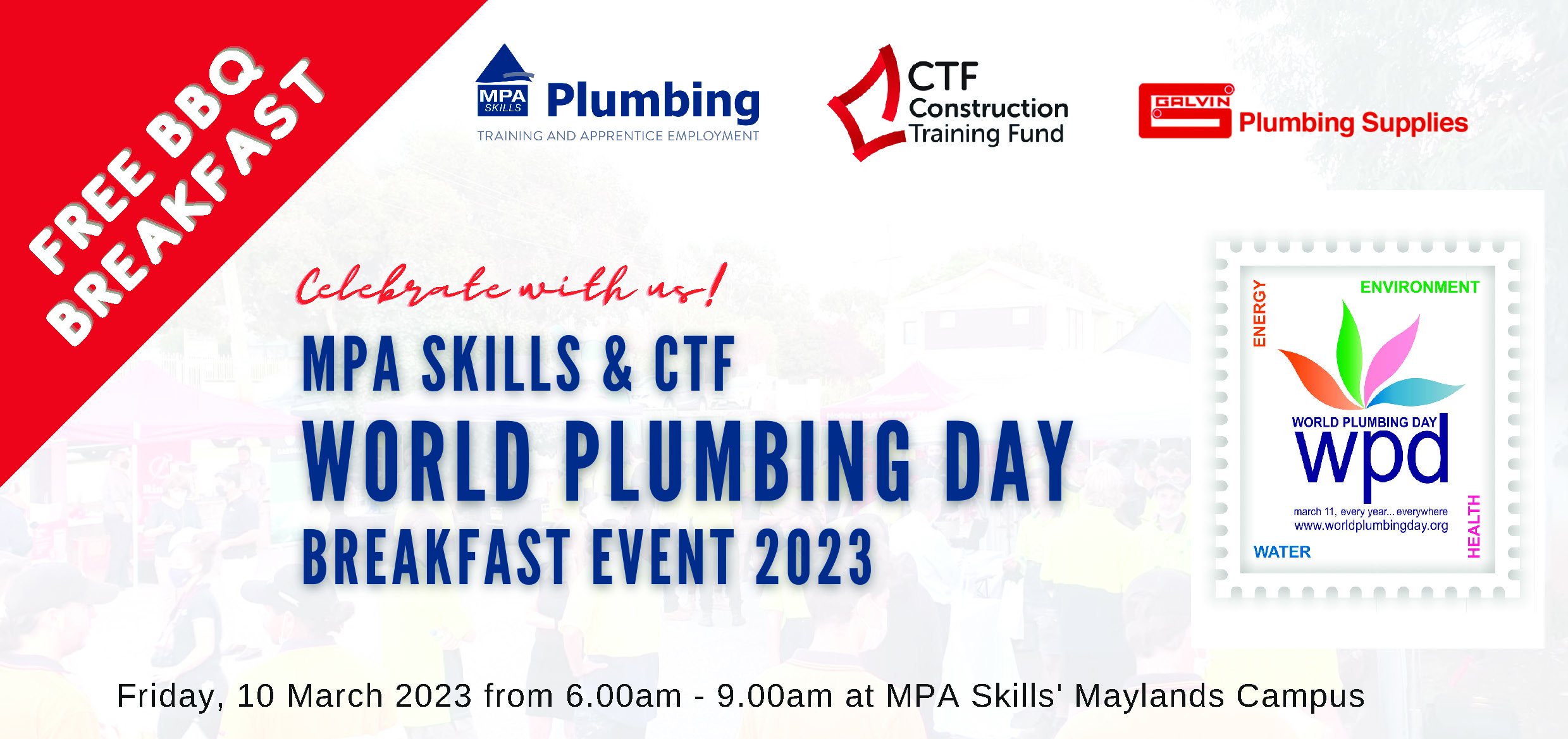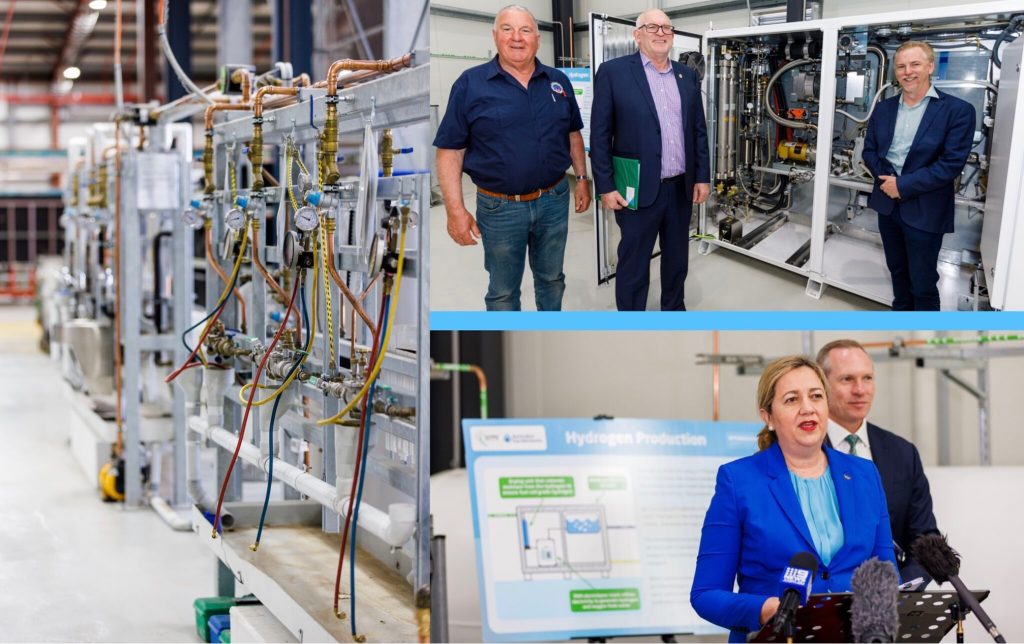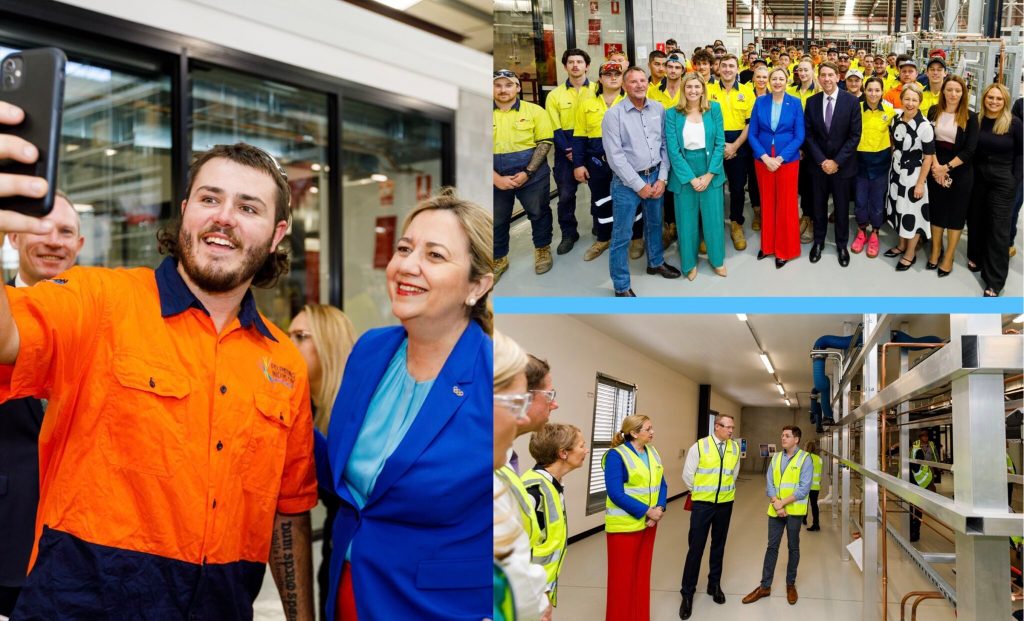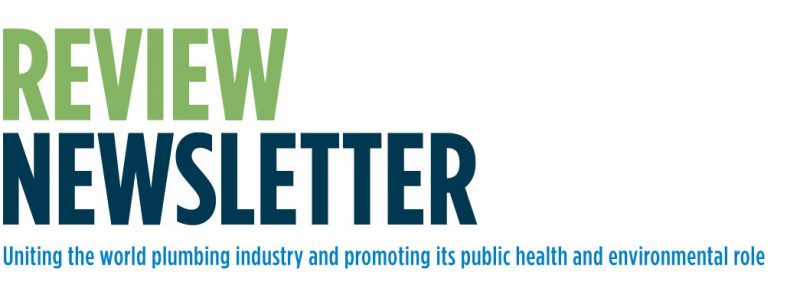
FEBRUARY 2023 | Chairman’s Message
The World Plumbing Council membership meeting is around the corner, and we have a great event planned for everyone who will attend, whether in person or virtually. This year’s meeting will be held in conjunction with Messe Frankfurt’s ISH 2023, the world’s largest plumbing and HVAC trade show. I was fortunate to visit this trade show in the years past and was amazed by the size of the exhibition. I don’t think it’s possible to visit every booth at the show — that’s how big it is.
At this year’s event we will sponsor a WPC/International Water, Sanitation and Hygiene (IWSH) Plumbing Champions Challenge. We have acquired an international spot in the venue where young plumbing professionals will build a plumbing system on site and then install the project at the Eintracht sports complex off site. Plumbing professionals from all over the world will install the project. Canada, United States, Germany, Australia, and Africa are some of the countries participating. Plumbing Champions is a new skills development and training program from the World Plumbing Council, delivered by IWSH. This program is modeled after the highly successful presentations at WorldSkills competitions in Russia (2019) and Germany (2022). I look forward to the recognition that the participants will get from showcasing their skills at the ISH conference.
I recently read an article about two scientists who have a developed adsorbents in the form of powder that can remove microplastics and other contaminants from wastewater. A magnet attracts the material and removes them from the water. This could be a gamechanger for our planet’s quest to clean up our waterways. Microplastics are in everything; unfortunately the invisible plastic enters our rivers and oceans and kills our marine life, not to mention the food we eat and drink. Here in the states, we are working to add legislation that requires our water purveyors to monitor and remediate not only lead but also PFAS that can be found in our water, soil, air and food.
Do not forget that the World Plumbing Council is accepting scholarship applications for 2024. The WPC Executive Board increased the scholarship amount this year from $10,000 to $15,000. Visit the WPC website at www.worldplumbing.org to download your application.
The United States recently held its own version of ISH in Las Vegas, Nevada. The KBIS 2023 show, like ISH, allows vendors from all over the world to showcase their products and new technology. Although I could not attend this year, my colleagues who did raved about a new kitchen sink faucet that is fully integrated with two lines capable of dispensing water, beer, nitro coffee, or any other pressurized beverage. Of course, at the show it was beer that was flowing from the kitchen sink faucet, which surely made this exhibitors booth very popular with the plumbers.
Once again, thank you to all the staff behind the scenes who make the WPC such a successful organization: Secretariat Gaby Davis, IAPMO and IWSH staff, and legal counsel Elmer Essar. They have been working countless hours making sure the WPC membership meeting in Frankfurt, Germany, is a huge success. I look forward to seeing everyone in person at ISH. Safe travels.
WPC Chairman
Tom Bigley
IN THIS ISSUE:
EXPERIENCE THE INNOVATIONS OF THE HVAC AND SANITATION SECTOR AT ISH
UN 2023 WATER CONFERENCE – WORLD PLUMBING COUNCIL ACCREDITED AS STAKEHOLDER
IAPMO PUBLISHES CHILDREN’S COLORING BOOK “MY MOM IS A PLUMBING SUPERHERO”
MPA SKILLS & CTF WORLD PLUMBING DAY BREAKFAST EVENT 2023
CIPHE ACTIVITIES CONTINUE TO SUPPORT THE PLUMBING INDUSTRY
THE PICAC HYDROGEN CENTRE OF EXCELLENCE OPENS IN QUEENSLAND, AUSTRALIA
KEEPING OUR ENERGY OPTIONS OPEN IS THE KEY TO FULLY DECARBONIZING THE WORLD ECONOMY
MAIN BHI JAL RAKSHAK CAMPAIGN LAUNCHED
WMPSC SIGNS MOU WITH DUPONT WATER SOLUTIONS
FOUNDATION LOOKS TO IMPROVE SANITATION IN NEPAL
BPEC SUPPORTS NEW PHSP TRAINING ADVICE
BIP PROJECT OFFERS FREE TECHNICAL WORKSHOPS
WORLD PLUMBING COUNCIL INVITES SUBMISSIONS FOR ANNUAL SCHOLARSHIPS
YOU’RE INVITED TO THE WPC GENERAL MEETING ON 15 MARCH 2023
EXPERIENCE THE INNOVATIONS OF THE HVAC AND SANITATION SECTOR AT ISH
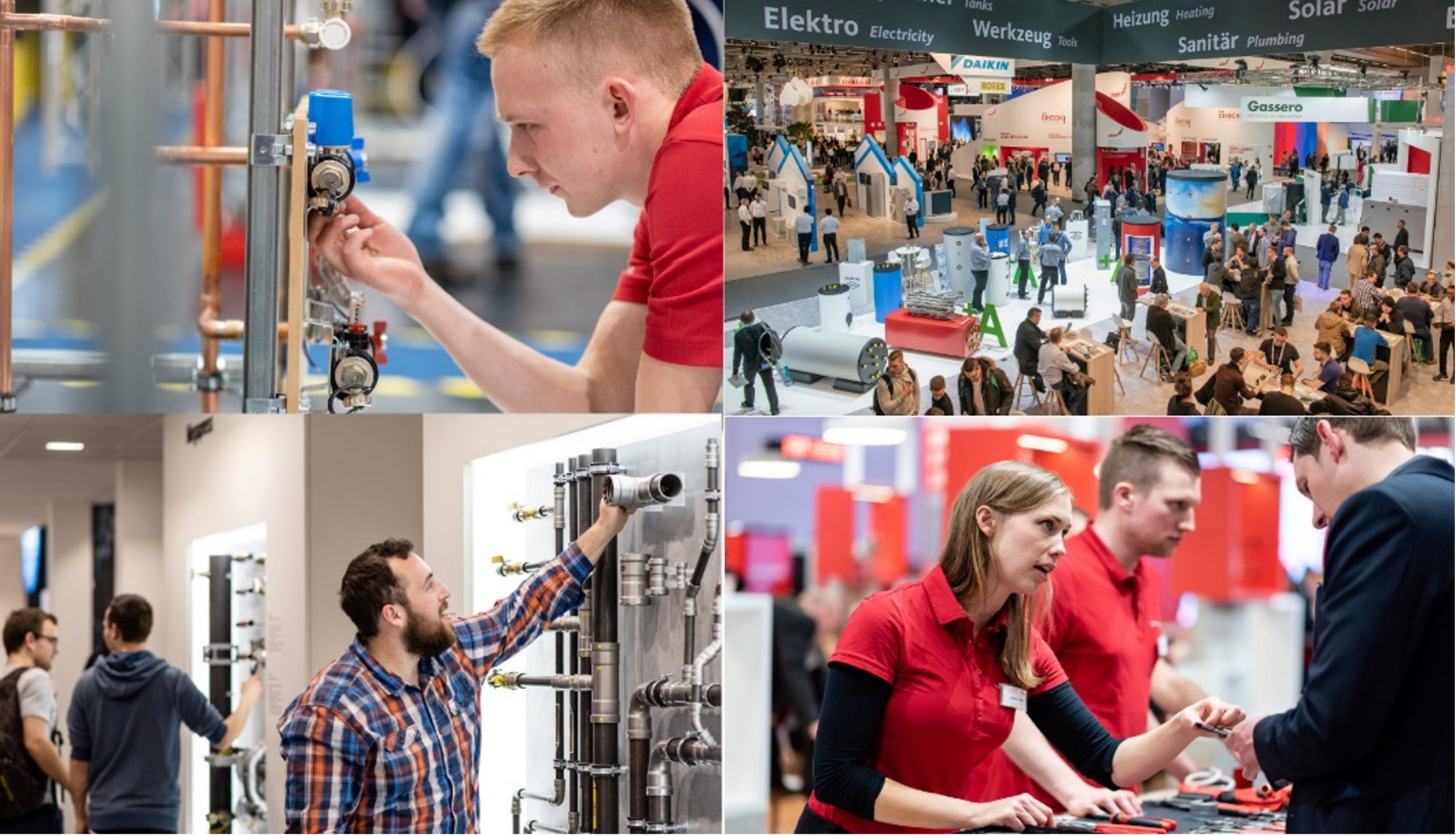
Submitted by ISH
Innovative technology, practical products, future trends — at the ISH in Frankfurt am Main you will experience ideas and solutions for your daily work. From 13 to 17 March, the international industry will be showing its marketable innovations for water, heating and air-conditioning under the motto “Solutions for a Sustainable Future.” About 2,000 exhibitors from all over the world, including the market leaders, are looking forward to exchanging ideas with you. Together with the World Plumbing Council, we will for the first time organise the Plumbing Champions@ISH2023 programme. We will present a skills showcase and training activity, in which a team of apprentices from around the world will work together with local partners to prepare a new plumbing system for donation and installation in a nearby community facility.
Get your ticket to the ISH now at www.ish.messefrankfurt.com
Any WPC member interested in tickets for the ISH show, please email secretariat@worldplumbing.org by 1 March.
UN 2023 WATER CONFERENCE – WORLD PLUMBING COUNCIL ACCREDITED AS STAKEHOLDER
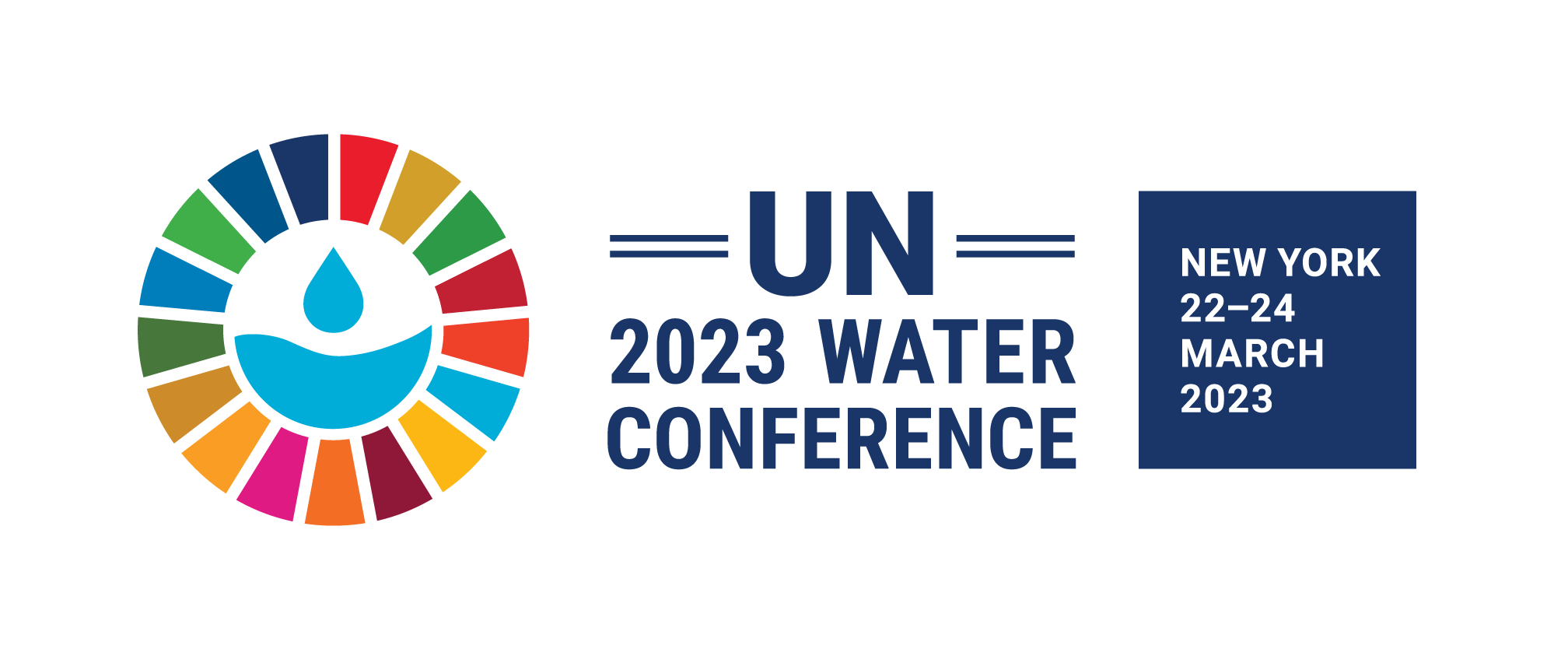
Water is a fundamental part of all aspects of life. Water is inextricably linked to the three pillars of sustainable development, and it integrates social, cultural, economic, and political values.
On 25 September 2015 United Nations General Assembly adopted the resolution “Transforming our world: the 2030 Agenda for Sustainable Development” that include 17 interlinked global goals. Sustainable Development Goal 6 is to ensure availability and sustainable management of water and sanitation for all by 2030.
In this context, the United Nations General Assembly proclaimed in its resolution 71/222 the period from 2018 to 2028 as the International Decade for Action, “Water for Sustainable Development” aiming to further improve cooperation, partnership, capacity development and catalyze actions in response to the 2030 Agenda.
From 22 to 24 March 2023 the UN 2023 Water Conference is to be convened at UN Headquarters in New York with the aim of a Midterm Comprehensive Review of the Implementation of the Objectives of the International Decade for Action. The UN 2023 Water Conference shall be preceded by regional and global preparatory meetings, as appropriate, and informed by existing water-related meetings at the regional and global level. The Government of Tajikistan and the Kingdom of the Netherlands will co-host the Conference.
Following a decision of the Executive Board, World Plumbing Council applied for accreditation as stakeholder in the preparatory process and the Conference itself that has been approved by UN General Secretariat in September 2022.
A Summary Report with proposed themes of the interactive dialogues in preparation for UN 2023 Water Conference based on a global online stakeholder consultation published in October 2022 can be found here https://www.un.org/sites/un2.un.org/files/final_water_consultation_report_19_oct.pdf.
Further information on UN 2023 Water Conference: https://sdgs.un.org/conferences/water2023
IAPMO PUBLISHES CHILDREN’S COLORING BOOK “MY MOM IS A PLUMBING SUPERHERO”

Submitted by The International Association of Plumbing and Mechanical Officials (IAPMO)
When was the last time your favorite superhero used powers to ensure you have safe drinking water and proper sanitation? The International Association of Plumbing and Mechanical Officials (IAPMO) is leading the charge to spotlight the real-life superheroes who protect our everyday lives by launching a new children’s coloring book. “My Mom Is a Plumbing Superhero” is the first children’s book focused exclusively on women plumbers, lifting up their contributions to public health while aiming to shift perceptions of plumbing careers.
IAPMO partnered with real-life superhero plumber Judaline Cassidy, a proud member of Plumbers Local Union No. 1 NYC, founder of Tools & Tiaras, and one of CNN’s “Champions for Change.” Inspired and guided by Cassidy’s 25-year career, “My Mom Is a Plumbing Superhero” creatively brings to life what it’s really like to be a plumber building a modern hygiene infrastructure.
“All of us at IAPMO are inspired by Judaline’s career journey and her message that plumbing careers are not gendered. Rather, it is about having the best plumbers to improve the way we live,” IAPMO CEO Dave Viola said.
The book illustrates how plumbers work on advanced water technologies to mitigate the effects of drought and natural disasters. The helpful nature of plumbers comes to life with illustrations depicting the work of service plumbers. The book also portrays women installing and maintaining medical gas systems.
“People need to know that plumbing is not just clogged toilets,” Cassidy said. “Clean water, steam heat, beautiful fixtures, gas lines — the pipes and systems that rely on my craft are in homes and buildings everywhere. My work is not only essential to daily life. My work saves lives.”
Only 2.1% of plumbers are women, according to 2021 data from the Bureau of Labor Statistics.
“The bottom line is that we desperately need more plumbers and, therefore, must find creative, unique ways to fill this shortage,” Viola said. “Collaborating with Judaline is the perfect opportunity to convey to young girls and women — as well as career counselors, youth leaders, and parents — that plumbing careers are purposeful, meaningful, and lucrative.”
Cassidy founded the nonprofit Tools & Tiaras as part of her mission to show girls and women that Jobs Don’t Have Genders™. A native of Trinidad and Tobago, Cassidy has broken barriers over the last 25 years advocating for equity for women in the trades. She was one of the first women accepted into Plumbers Local 371 Staten Island, NY; the first woman elected to the Examining Board of Plumbers Local Union No. 1 NYC; and ushered in the first Women’s Committee within her union, becoming its first president.
“Awareness is key,” Cassidy said. “If young women and girls don’t know what plumbers actually do or how lucrative and rewarding a career in plumbing is, how can we expect them to consider, much less pursue, this path? It’s exciting for me to collaborate with IAPMO on such a fun project that will not only change what people think about plumbing but will show them that plumbers come in all genders and statures.”
IAPMO tapped noted children’s author Jo S. Kittinger and accomplished illustrator Chuck Galey to create “My Mom Is a Plumbing Superhero.” Kittinger has penned more than 35 books for children. Her book, “The House on Dirty-Third Street,” won several social justice awards, including a Christopher Award, a Social Justice Literature Award, and the Carol D. Reiser Children’s Book Award. Galey has illustrated more than 50 books for educational publishers and created covers for Beverly Cleary’s “Ribsy” and “Henry Huggins,” as well as R.L. Stine’s “Fear Street” series for Recorded Books, Inc.
The 32-page book is available as a free PDF download, and qualifying organizations may order printed quantities from IAPMO at cost. Visit UniformCodes.org/plumbing-superhero for more information.
MPA SKILLS & CTF WORLD PLUMBING DAY BREAKFAST EVENT 2023 – FRIDAY 10 MARCH 2023 FROM 6-9 A.M. AT MPA SKILLS MAYLANDS TRAINING CAMPUS
Submitted by MPA Skills
On Friday 10 March 2023, MPA Skills Plumbing Training and Apprentice Employment will be celebrating World Plumbing Day, one day early, but nevertheless equally important.
MPA Skills, the Construction Training Fund and Galvins Plumbing Supplies will host this free breakfast event from 6 to 9 a.m. at MPA Skills Maylands campus.
It will be a huge morning for MPA Skills. We have hundreds of plumbing apprentices and tradespeople coming to visit the 30+ suppliers in attendance, win prizes, get free giveaways, enjoy a free barbecue breakfast and coffee! Most importantly, they will say THANK YOU to all plumbers for providing the world with access to fresh drinking water and sanitation!
Thank you to the Construction Training Fund and Galvins Plumbing Supplies for their generous support regarding this event.
To all plumbing apprentices and tradespersons in Perth, Western Australia, put it in your calendar, come down to Maylands and enjoy a free breakfast before work!
CIPHE ACTIVITIES CONTINUE TO SUPPORT THE PLUMBING INDUSTRY
Submitted by The Chartered Institute of Plumbing and Heating Engineering (CIPHE)
During the last 12 months CIPHE’s communications and engagement with government increased substantially through a number of areas and activities including: Heat and Buildings Strategy; Renewable Heat Incentive; Hydrogen Heating Trial; Sustainable Warmth; Clean Heat Directorate, and Healthy Homes & Buildings, Water Efficiency, Electrification of Heat and the 2025 Future Homes standard.
CIPHE also responded to the following consultations: UK Mandatory Water Efficiency Labelling, Hydrogen for Heat, WC Performance Specification in England and Wales and the Net Zero review. Many of the issues listed above are not specific to the UK. Hopefully, through the terrific network available through the World Plumbing Council we can continue to share best practices with issues of common interest.
A summary of CIPHE’s activities are included in CIPHE’s manifesto, which is revised annually and is available via the following link: https://www.ciphe.org.uk/globalassets/media/pdfs/ciphe-manifesto-2020_24—2022-focus-web.pdf.
This year, the InstallerSHOW is being held from 27-29 June at the NEC Birmingham, England. It is the UK’s biggest heating, plumbing and electrical show, hosting around 400 exhibitors, 150 speakers and 15,000 visitors. If you would like to present a paper or attend the event please contact: events@installeronline.co.uk
“HAVING NO MINIMUM LEGAL STANDARD FOR ALL ENGINEERS INSTALLING HEAT PUMPS IS NONSENSICAL,” SAYS CIPHE CEO
Submitted by the Chartered Institute of Plumbing and Heating Engineering (CIPHE)
The lack of mandatory qualifications for heat pump installations not covered by the Boiler Upgrade Scheme has reignited the fuel behind the Chartered Institute of Plumbing and Heating Engineering (CIPHE’s) crusade for a focus on quality.
Under the scheme, which enables homeowners to apply for a grant to partially cover the cost of replacing fossil fuel heating systems, engineers installing heat pumps must be MCS certified. However, there is no mandatory qualification on top of the minimum NVQ Level 2 qualification for general heat pump installations completed outside the scheme. The CIPHE warns that without this, systems could be environmentally and financially inefficient and even dangerous for system users.
“Competency is essential. So, the idea there’s no minimum legal standard for all heat pump installations is nonsensical,” CIPHE CEO Kevin Wellman said. “With proficient installation, heat pumps can provide low-carbon heating, which saves money and has a positive impact on the environment. In cases where poor installations are carried out, there could be disastrous ramifications.
“Plus, there may even be an influx of legal claims years down the line. We are all vulnerable if plumbing and heating work is poorly executed and, if plumbing and heating professionals are not appropriately trained and a legal standard put in place, the consequences could be severe.”
In November 2022, the Department for Business, Energy and Industrial Strategy (BEIS) launched a £9.2 million energy efficiency training scheme. However, the Scottish Heat in Buildings Strategy document states: “there are no specific statutory minimum qualifications required to install zero direct emissions heating systems, or carry out energy efficiency works.”
Wellman is now calling for a legal qualification requirement for all installers: “Steps like the BEIS investment and updates to the Scottish Heat in Building Strategy are extremely positive. However, this must be underpinned by a mandatory minimum standard for all heat pump installers, including those installed outside of the upgrade scheme. Given that many boiler replacements are distress purchases, there will be a percentage of the population who cannot wait for government grants to come through. In these incidents consumers may be vulnerable to poor installations.”
There are around 1,300 companies certified to install heat pumps, putting the approximate number of qualified heat pump installers at a mere 4,000. According to Nesta, this means the industry must add roughly 5,000 to 7,000 engineers every year from 2025 until 2035 to meet the target of 600,000 heat pump installations per year by 2028.
Wellman adds: “I certainly agree that we must bring more installers on board, and the CIPHE celebrates the efforts of BEIS in this area. Without more qualified professionals, current installers will need to work 25-hour days, eight times a week to hit net zero targets. That is simply absurd. As such, government and industry must continue working together to attract new recruits while promoting ongoing training for those already in the industry. Quantity must be balanced with quality.”
For more information on plumbing or heating training, please visit: www.ciphe.org.uk/professional/careers–trainees/
THE PICAC HYDROGEN CENTRE OF EXCELLENCE OPENS IN QUEENSLAND, AUSTRALIA
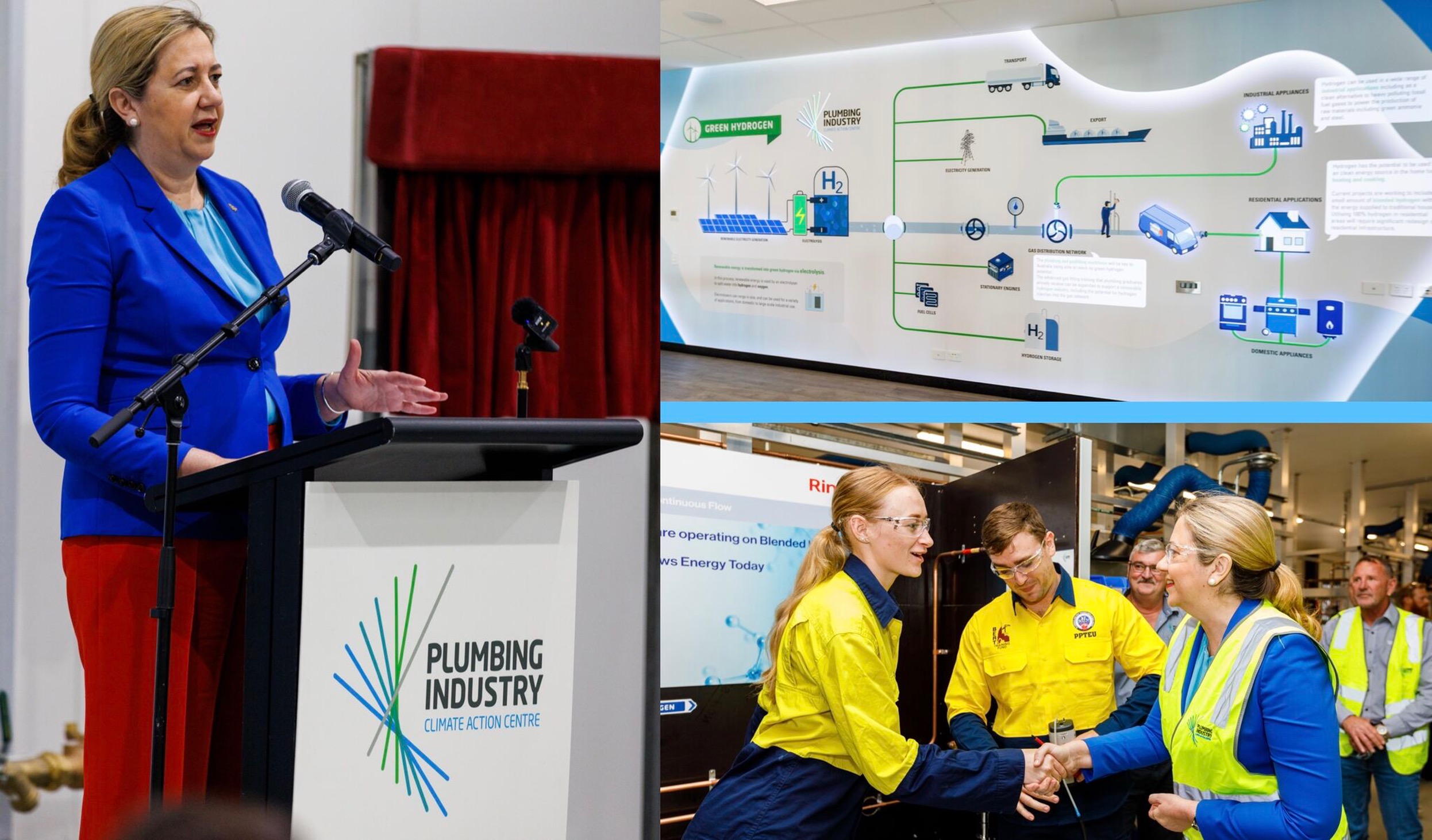
Submitted by the Plumbing Industry Climate Action Centre
Australia’s first Hydrogen Centre of Excellence, an industry-government partnership led by the Plumbing Industry Climate Action Centre (PICAC), opened in Brisbane, Queensland, in November.
The $20 million (AUD) training facility, at the PICAC Beenleigh campus, will upskill gas plumbing professionals, enabling Australian workers to begin the transition to a clean, renewable hydrogen future. The facility was built by apprentices, for apprentices, with approximately 100 apprentices employed to develop the Training Centre during the project.
Former WPC Chair and PICAC Chief Executive Shayne La Combre and Queensland Premier Annastacia Palaszczuk opened the centre. Numerous Queensland ministers and more than 150 industry participants and apprentices attended the event. The centre, a world-leading example of investment in green hydrogen skills, will ensure apprentices and those working in our industry receive high-quality training to prepare them for jobs in new and emerging industries.
The partnership between PICAC and the Queensland government demonstrates how industry can work with government to fast-track the development of the renewable hydrogen industry with a local, skilled workforce pipeline.
The government investment in the project addresses the urgent need to green Australia’s energy mix to lower emissions and combat climate change. Transitioning gas networks so they use 100 per cent renewable, carbon-neutral hydrogen will contribute to emissions reduction efforts. As Australia continues to recover from the COVID-19 pandemic, the economic opportunity presented by renewable hydrogen can also be transformative.
There are around 4.7 million residential Australian properties that are plumbed for gas. That means that by as early as 2027, a significant portion of the country will be exposed to green hydrogen as fuel.
There will be a range of skilled tasks to be performed when this initial introduction of hydrogen into gas distribution networks takes place. Plumbers and gas fitters will need to be engaged to complete these needed upgrades. For example, they will need to perform minor maintenance, refit older appliances and pipes, install interval metres, and recertify industrial appliances.
The new training centre includes specialised gas training equipment, lower carbon technology upgrades, roof-access work platforms, special hazards fire systems and state-of- the-art training rooms. It will expand training capacity from 700 to 1,100 apprenticeships and tradespeople per year, training workers in fire protection, fire control, plumbing and hydrogen.
PICAC’s Hydrogen Centre of Excellence has a key role to play in Australia’s renewable energy transition by:
- identifying and addressing skill gaps in hydrogen training, and delivering and facilitating training aimed at upskilling gas plumbing professionals,
- directly delivering and facilitating hydrogen gas manufacture and maintenance training,
- hosting industry and community awareness-raising events to promote hydrogen; and
- providing the sector with a product demonstration environment for new hydrogen technologies.
The purpose-built Hydrogen Centre of Excellence will bring hydrogen product development and hydrogen training together under one roof. This will create alignment, which is vital for emerging sectors that are dealing with new technology, along with real-world insights on safety to help inform policymakers on best-practice regulation to protect the community, particularly around standards, practices, and licensing.
About PICAC
PICAC is a whole-of-industry collaboration model between the Plumbing and Pipe Trades Employees Union, the Master Plumbers’ Association, the National Fire Industry Association and the Air Conditioning and Mechanical Contractors Association (AMCA).
KEEPING OUR ENERGY OPTIONS OPEN IS THE KEY TO FULLY DECARBONIZING THE WORLD ECONOMY
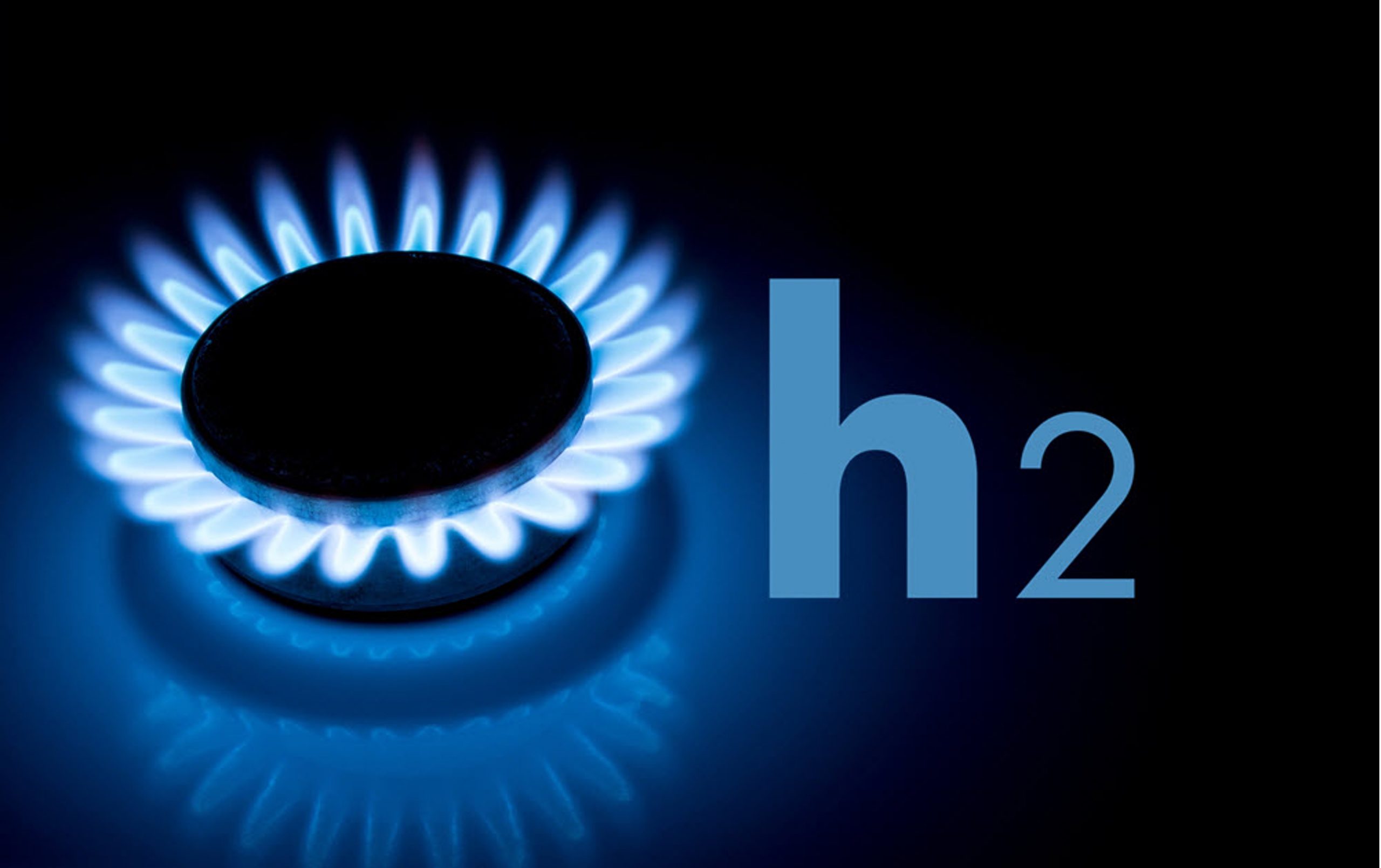
Submitted by the Plumbing Industry Climate Action Centre
The need to reduce the world’s carbon footprint and transition to emissions-free technology sources is more urgent than ever.
Energy sectors around the world need to make timely, smart decisions about how to facilitate an equitable transition that considers all energy sources.
With less than a decade to revert the devastating effects of climate change, it would be detrimental for governments, policymakers and energy gatekeepers to get bogged down in choosing the “best” energy source to replace fossil fuels. Put simply, it is wasting precious time.
Keeping our energy options open and embracing green energy alternatives like green hydrogen are going to be key to a successful and timely transition.
Australia, like many economies around the world, is seeking to rapidly depart from an historic reliance on fossil fuels (mainly coal-fired electricity generation and natural gas) and transition to renewables. Governments are busily setting and, in some jurisdictions like Victoria in Australia, legislating net-zero-emissions targets. While targets are important and needed, setting targets is only the beginning of a long and arduous journey to net zero. The more challenging part is determining the best and most effective transition pathways.
In Australia, the pathway to net zero is unclear, and it is imperative that policy decisions around the transition adapt to new information and consider the different decarbonisation pathways that emerge as their relative economic and technical feasibility becomes clearer over time. Recent developments have taught us that the cost and technical feasibility of various technologies will change, possibly dramatically, as will investment trends, social licence, and consumer preferences.
While the technical options continue to expand in Australia and other parts of the world, the policy options seem to be narrowing. At the very time policymakers should be seeking to embrace as many low or zero carbon energy options as possible, all-in electrification is overshadowing the rest. Driven perhaps by a perceived imperative to bring a level of politically digestible simplicity to the opaque complexity of energy and climate policy, governments and policymakers are increasingly being seduced by the appeal of a binary choice between electrification (good) and gas (bad).
There is no doubt that the boom in renewables generation and production (wind and solar) means there is greater opportunity to electrify large parts of global economies. And as production further increases, as is forecast, and generation and distribution systems are refined and expanded (and production further increases and costs continue to come down), abundant renewables will mean there are significant benefits that can be gained through electrification.
However, there are more than a few problems with the all-in electrification approach.
A primary challenge is ensuring that the transmission infrastructure of poles and wires that are commonly above ground (particularly in Australia) are sufficiently capable and robust to cope with the increase in both the supply and demand for electricity. In Australia, there is a gap between what government policy is asking of the transmission network and what it is realistically capable of handling safely. This lag adds to the risk profile of the electrification strategy.
With the focus of policymakers so tight on electrification, the multi-lane freeway to decarbonisation risks being reduced to a narrow laneway – and that is a high stakes gamble. Putting all our energy eggs in one big, electrified basket is short sighted and invites disaster.
Despite the best efforts of engineers and regulators, energy grids can and do fail. In a time when extreme weather events are increasingly common (e.g., flood or fire) electricity grids are at considerable risk. It would be reckless public policy to not have available energy alternatives and contingencies.
The all-in electrification approach also risks “crowding out” other important, complementary, and potentially more efficient green energy sources, such as the emerging green hydrogen. Green hydrogen alone cannot address the world’s emissions concerns, but fully decarbonising the economy without it would be extremely challenging, and frankly a mistake we cannot afford to make.
Green hydrogen is generated through the electrolysis of water, powered by renewable electricity, capturing the hydrogen, and releasing the water. It is emissions free, does not require an abundant amount of space to produce like wind and solar farms, and is emerging as a vitally important piece of the decarbonisation story.
By providing a zero-carbon renewable energy that can be stored and transported over long distances and operated continually, green hydrogen solves the intermittency issues of solar, wind and batteries – making it possible to power homes, businesses, commercial trucks, aeroplanes, data centres, backup power generation, industrial manufacturing and more.
Hydrogen can be used in place of natural gas across a range of uses — homes and businesses, in heavy industry and for electricity generation. Hydrogen energy can also be stored. Hydrogen storage is another form of chemical energy storage in which electrical power is converted into hydrogen and then stored safely (for example, in existing natural gas pipelines) until it is ready to be released again by using the gas as fuel in a combustion engine or fuel cell.
The Commonwealth Scientific and Industrial Research Organisation (CSIRO) in Australia suggests that blended hydrogen and natural gas could reach gas networks in 2027 or 2028, which would significantly extend the uptake of hydrogen in Australia from niche users to a much larger customer base – particularly considering over 65% of Australian households currently use gas.
To prepare for this critical juncture in Australia’s renewable hydrogen future, approximately 20,000 licensed plumbers and gasfitters will need to meet new hydrogen-based competency requirements to maintain their accreditation.
In support of CSIRO’s projections, there are several world-first pilot and feasibility studies underway in Australia and internationally, which are widely expected to provide “proof of concept” for green hydrogen production technology and drive its uptake within a relatively short time horizon (five to 10 years) and bring Australia closer to its federally legislated net-zero targets.
However, as a gas, green hydrogen is being tarnished by the anti-gas pro-electrification discourse. Natural gas, which is mainly methane, is a carbon-emitting fossil fuel, and it is not a surprise that its use will be increasingly limited in a carbon constrained context. However, not all gas should be tarred with the same brush.
While green hydrogen may be a gas, it is also a zero-emissions energy source that can be beneficial to our economy without damaging the environment.
The most significant benefits of green hydrogen could accrue in regions where there is already an existing and reliable gas pipeline infrastructure network in place. In Victoria, a state in Australia that has been heavily reliant on natural gas for cooking, heating, hot water, and a range of industrial applications for over half a century, green hydrogen could, over the short to medium term, become a genuine alternative to both natural gas and electricity.
Green hydrogen gives economies (particularly those with existing gas infrastructure networks) an important opportunity to have two operational, complementary, mutually supporting energy grids, with green electricity and green hydrogen interchangeable or directly usable by consumers and industry.
In the current political context, in which fossil gas (and, by extension and unfairly – hydrogen) is seen as the enemy of net zero, there is a significant risk that the opportunity of green hydrogen will be missed. As more households, businesses, communities, and regions electrify and disconnect from gas, the pipe infrastructure supporting those connections will cease to be maintained. Under this scenario, over the short to medium term the infrastructure needed to realise the hydrogen opportunity will gradually degrade and will cease to be economic or safe for the storage and transport of hydrogen. This is why it is so important to maintain the gas connections to homes and businesses even when appliances are electrified.
Despite potentially being the key to unlocking the door to a net-zero future, there are vested interests seeking to stomp on the emerging industry’s green shoots. Those vested interests, with a sole focus on electrification, will — deliberately or through poor understanding — seek to group natural gas (methane) and green hydrogen together. They will seek a polarised and binary contest in which one technology (electrification) will prevail.
The anti-gas lobbyists have, and will continue to, rely on the historied and often misinformed perceptions of green hydrogen that have played out across several mediums. Most recently, the Netflix movie “Glass Onion” made several flawed insinuations about the “dangers” of hydrogen’s use in the home, going so far as to blow up an entire mansion with a tiny piece of solid hydrogen. These lobbyists operate in the hope that this lack of social license might stymie the development of this emerging energy source.
The road to net zero is not a zero-sum game. The way forward needs to be about options. The question should not be whether to choose electrification or green hydrogen, but rather how best do we deploy both – along other technologies as they emerge – and reach net-zero targets as quickly as possible.
OBITUARY
Submitted by the Water Management and Plumbing Skill Council
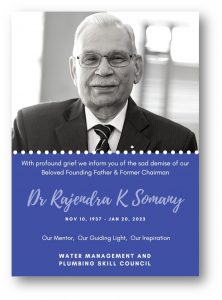 It is with profound sorrow and grief that we inform the news of the demise of our founding father and former chairman, Dr. Rajendra Kumar Somany. With heavy hearts, we at Water Management & Plumbing Skill Council (WMPSC) pay rich tribute and homage to a great leader and visionary. Dr. Somany was a leader in every sense of the word. His contributions to the field of plumbing and skill development are immeasurable. He was a pioneer in the industry who always pushed the boundaries and was a constant source of inspiration to all of us.
It is with profound sorrow and grief that we inform the news of the demise of our founding father and former chairman, Dr. Rajendra Kumar Somany. With heavy hearts, we at Water Management & Plumbing Skill Council (WMPSC) pay rich tribute and homage to a great leader and visionary. Dr. Somany was a leader in every sense of the word. His contributions to the field of plumbing and skill development are immeasurable. He was a pioneer in the industry who always pushed the boundaries and was a constant source of inspiration to all of us.
Dr. Somany was extremely passionate about promoting new initiatives for the uplifting of the industry, especially through skill development. He was instrumental in the formation of the council in 2012 and spearheaded our expansion ever since. His able leadership and guidance put us at the forefront of the National Skilling Mission under the Ministry of Skill Development & Entrepreneurship, Government of India. Dr. Somany always welcomed new ideas and thoughts, and his passion paved the way for us to achieve feats that have been duly acknowledged by the environment.
For his contribution to the National initiatives and upliftment of the entire industry through Water Management & Plumbing Skill Council, he was conferred with Honour of “Bishma Pitamah of Plumbing” by the Honourable Minister Shri Dharmendra Pradhan, Minister of Education & Skill Development & Entrepreneurship. He spearheaded the Plumbing Skill Mahotsav with 14,000 plumbers under one roof in 2019 (which led to the creation of a world record with Limca Book of Records). His articulation and vision in creating programs to recognise the plumbing workforce and to upskill them for seamless transition into the mainstream won us accolades universally. Dr. Somany’s understanding of the international skilling ecosystem was laudatory. Our forays into the international stage by representation of Indian plumbers at the WorldSkills Competition (considered to be the Olympics of skills) was also a first in the field. Among many accolades of the council, an important dream of his was to have female participation in the plumbing workforce, and this was fulfilled through his continued efforts and perseverance. We now have women participation in the ecosystem via WMPSC. We owe all our successes to him.
His passing is a great loss not just to the organization but to the entire industry. We will always remember him for his passion, his dedication, and his unwavering commitment to excellence. He leaves a lasting legacy that will continue to inspire future generations. He was a brand ambassador for India and his footprints can be seen the world over. We are extremely proud to have been guided by him. His vision, his leadership and his guidance will always be remembered.
MAIN BHI JAL RAKSHAK CAMPAIGN LAUNCHED

Submitted by the Water Management and Plumbing Skill Council
The Water Management & Plumbing Skill Council’s Main Bhi Jal Rakshak campaign was launched in association with Rotary India (RI District 3011) & Sri Sri Rural Development Program Trust (SSRDP) Art of Living Foundation. The collaboration was formed with the goal of promoting water conservation by educating students on various water-saving methods, developing programmes that directly reduce water waste, advocating for the importance of water conservation to the masses, and instilling a sense of pride in the individual for contributing to this national service. The campaign is being conducted in schools across the country and aims to empower kids to educate their friends and family members about the significance of water and how they can save it for future use, whilst also controlling water pollution. The collaboration between the three organizations also intends to save 1,000 crore liters of water each year by encouraging students to install aerators and low-flow fixtures.
WMPSC SIGNS MOU WITH DUPONT WATER SOLUTIONS
Submitted by the Water Management and Plumbing Skill Council
The Water Management & Plumbing Skill Council has signed an MoU with DuPont Water Solutions for the training and certification of plumbing technicians across the country as part of the Recognition of Prior Learning Activities being carried out with Corporates by WMPSC.
PLUMBERS MYTHS

Submitted by Charles Zm Kapasula Plumbing Instructor Phwezi Rural Polytechnic, Rumphi, Malawi
There are four basic theories of myth: rational myth theory, functional myth theory, structural myth theory and psychological myth theory.
Rational Myths Theory states that myths were made to better understand natural events and forces that occurred in people’s everyday lives.
Functional Myths Theory talks about how myths were used to teach morality and social behavior. It states that myths told about which types of things should and shouldn’t be done and the consequences of those wrong doings.
Structural Myth Theory are said to be myths based on human emotions. These types of myths show the two sides of the human mind — the good side and the bad side.
Psychological Myth Theory states that myths are based on human emotions and they come from the human subconscious mind. Cultures all around the world had similar fears, questions and wishes that, to them, were unexplainable.
Bursting myths about the skilled trades is so interesting, Plumbing myths are some of the worst out there. If you are considering becoming a plumber, getting accurate information on training, careers, and the field in general is crucial. One need the following information to make an informed decision about your future.
I would like to set the record straight on some common plumbing misconceptions. Following are some top myths about becoming a plumber:
#1 YOU DON’T NEED CERTIFICATION TO BECOME A PLUMBER
Busted. Plumbing is a regulated trade all over the world. One needs to fulfill strict training requirements and pass an exam to earn a certificate and legally work as a plumber. There are no shortcuts.
Usually, the first step is completing a pre-apprenticeship plumbing program. A quality plumbing school will connect one with local employers and help with this process.
#2 ALL PLUMBERS DO IS FIX TOILETS AND UNCLOG PIPES
OK, so plumbers do fix toilets and unclog pipes, but this is only a small part of what the job involves. In fact some plumbers don’t work on toilets at all!
There are quite a few ways to specialize in this field. Plumbers can become:
- Specialists in fire suppression sprinkler systems
- Pipefitters/steamfitters
- Pipe layers
- Sales specialists
- Industrial plumbers
- Commercial plumbers
- Residential plumbers
- Plumbing Instructors or a trainer of trainers
Tools, challenges, fixtures, and daily work tasks vary a lot, depending on which path you take. Industrial plumbers, for example, usually work on boilers, site sewer lines, and industrial-grade pipes and fixtures.
Meanwhile, pipefitters and steamfitters focus on laying out, assembling, and maintaining piping systems that carry water, steam, chemicals, and fuel. They often work at power plants and factories.
#3 PLUMBERS DON’T NEED STRONG PEOPLE SKILLS
This couldn’t be further from the truth. Customer service and teamwork are key requirements for success as a plumber. On any given job site, you could easily be working around electricians, gasfitters and carpenters. The more easily you get along with others, the better.
Plus, when plumbers work in people’s homes, they don’t just show up and silently get their work done; they explain problems and solutions. They recommend products and plumbing upgrades. They answer questions, thoroughly and patiently. It’s all about people skills.
# 4 PLUMBING TECHNOLOGY HASN’T CHANGED MUCH OVER THE YEARS
Plumbing technology is changing all the time. People want more efficient systems. People want eco-friendly options. People want digital-controlled, customized plumbing solutions.
There are tons of new products on the market serving every kind of need and niche:
- Touchless, sensor-controlled faucets and fixtures
- Piping systems that send “leak alerts” to our smartphone
- Eco-friendly home plumbing options that allow people to recycle gently used water
- Electronic flood detectors
- Tankless water heaters
- Digital showers that let you program light, sound, temperature, and steam
Becoming a plumber means keeping up with all these changes and continuing to build one’s technical knowledge. New tools require new skills. Smart plumbers follow trends in their area of specialization so that they can offer clients the latest products and services.
#5 DEMAND FOR PLUMBERS IS DECLINING WORLDWIDE
Nope. Demand for plumbers is holding steady, according to reports from several job banks. Yes, the field is competitive, and plumbers must work hard to be successful. But this is true of any trade, which is why training and continued skill-building are so important.
We all know the old stereotype of the slow-moving, unfit plumber who can barely fit under the sink (or into their jeans). In reality, doing this job well takes a certain level of physical fitness.
For example, plumbers need to:
- Go quickly up and down stairs
- Get into and out of awkward spaces
- Bend, lift and crouch
- Be on their feet for hours at a time
No one is saying you need to be a top athlete to do this work, but being strong and fit will definitely help you get jobs done better and more quickly — without injuring one self.
In conclusion, it appears that man created myths for quite a few reasons. These reasons include explaining the unknown, natural events and forces, to show the duality and pureness of human nature and the human mind.
FOUNDATION LOOKS TO IMPROVE SANITATION IN NEPAL
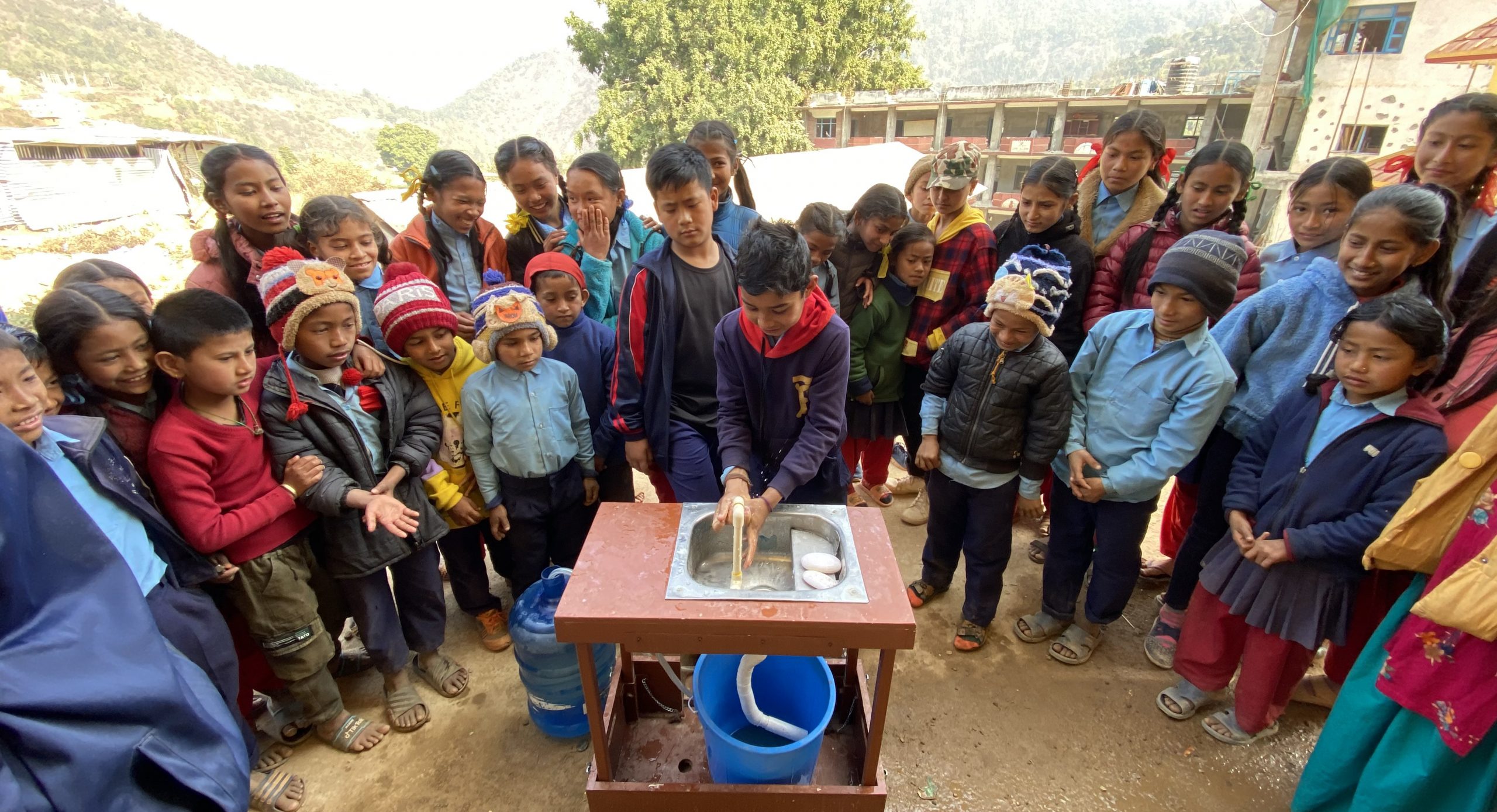
Submitted by the Paul Pholeros Foundation
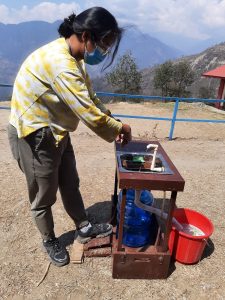 The Paul Pholeros Foundation works to improve the health and well-being of people in need and living in marginalised communities by improving their environmental health and living conditions.
The Paul Pholeros Foundation works to improve the health and well-being of people in need and living in marginalised communities by improving their environmental health and living conditions.
The PPF has been developing a portable, packable, transportable, durable hand-washing unit in Nepal, partly in response to the raised awareness of the importance of hand-washing during the COVID pandemic.
Many communities in Nepal suffer from lack of access to reticulated clean water — there’s a lot of water in Nepal but this isn’t matched by a lot of infrastructure to take it where it’s needed.
After feedback, evaluation and any final modifications, the PPF will fabricate the units in Nepal for distribution to program partners and community-based programs in Nepal. It is a small step to improve access to basic hand hygiene, but an important one.
BPEC SUPPORTS NEW PHSP TRAINING ADVICE
Submitted by BPEC
BPEC has been proud to support the launch of new and comprehensive advice on the correct routes to becoming a qualified plumbing and heating engineer.
Available on the Plumbing & Heating Skills Partnership (PHSP) website and aimed at both school leavers and career changers, the guidance maps out straightforward messages on which qualifications and training you need, tips for choosing a training provider and the warning signs that could mean the training won’t lead to qualified status.
With some training providers offering intensive courses over a few weeks or months, the clear advice from PHSP is that it takes those with no prior experience four years to become fully qualified.
The importance of work experience is also stressed, with the need to spend time on site with a qualified tradesperson to build skills, confidence and knowledge over a long period of time, alongside any classroom learning.
When choosing a training provider, the PHSP recommends looking carefully at the small print, avoiding hard sells, checking accreditations and finding out whether any existing qualifications can be recognised. Funding may also be available in certain circumstances.
Warning signs to look out for include packages of shorter qualifications that when combined do not lead to qualified status, questionable finance or loan sales techniques, and particular contract wording that could have significant consequences.
The PHSP was established by the BPEC Charity along with the Association of Plumbing & Heating Contractors (APHC) and the Scottish & Northern Ireland Plumbing Employers’ Federation (SNIPEF) to lead and support the development of standards, qualifications and apprenticeships for the plumbing and domestic heating industry.
“It’s vital to choose the right training course, as not all will give you the skills you’ll need to become a fully qualified plumbing and heating engineer,” said PHSP Chairman Duncan Wilson. “Take the wrong route and you may not be able to properly embed your learning and knowledge and you are potentially wasting time and money.
“We hope our advice is useful to all those looking to enter the industry and gives them the authoritative guidance on not only what training is needed, but also what to avoid.”
To read the full advice visit the PHSP website at www.phsp.org.uk/training-advice/
BIP PROJECT OFFERS FREE TECHNICAL WORKSHOPS
Submitted by Abrinstal
Event on March 10th will celebrate the World Plumbing Day
The dissemination of knowledge and good practices related to Plumbing is one of the main actions developed within the BIP – Building Installation Performance Project, which is the quality seal of the installations and is coordinated by Abrinstal (Brazilian Association for Compliance and Facility Efficiency).
This year alone, within the BIP project, at least three events will be held to disseminate information about the sector and they are free:
– March 10 – 11th Plumbing Workshop – Hydrosanitary and Rainwater – BIP
– June 23 – 14th Installations Forum – BIP
– August 25th – 12th Installation Workshop – Fuel Gases – BIP
Not by chance, the Installations – Hydrosanitary and Rainwater workshop will take place on March 10th, the eve of World Plumbling Day, celebrated on March 11th.
“Every year we carry out activities to celebrate the World Plumbing Day, as a way of valuing this professional, who is so important for public health”, said the executive director of Abrinstal and member of the WPC board, Alberto Fossa.
All webinars carried out within the BIP project are available, in full, on the Abrinstal page, on Youtube (https://www.youtube.com/@Abrinstalorg/streams ).
The BIP establishes the technical and management conditions and requirements, applicable to companies providing services for building installations, in order to guarantee sustainable and structured growth of the sector, seeking to improve the quality and safety of the services provided and the infrastructure of building services. Its objective is to guarantee the quality of installation services; increase safety and enable increased productivity in the building construction and infrastructure chain.
Abrinstal
Abrinstal has been a member of the WPC since 2013 and, since 2016, the executive director of Abrinstal, Alberto J. Fossa, has been on the board of the entity. The association emerged within Sindinstalação (the Union of the Installation Industry of the State of São Paulo), through the Qualinstal project, predecessor of BIP. Abrinstal is a non-profit entity, created in 2006, which aims to develop actions that promote compliance and efficiency of hydrosanitary, electrical, fuel gas, fire prevention and fighting, building automation, electronic security and telecommunications installations.
WORLD PLUMBING COUNCIL INVITES SUBMISSIONS FOR ANNUAL SCHOLARSHIPS
The World Plumbing Council is accepting applications for its three annual scholarships, two of which are awarded to plumbers to travel internationally to learn more about the industry, and the third of which goes to a trainer/instructor to attend the annual UA Instructor Training Program in Ann Arbor, Michigan.
The scholarships are available to individuals actively involved in their local plumbing industry, particularly in education and training. They help create an educational exchange between plumbing industry participants from different countries; increase awareness of the contribution plumbing has made to global health, sustainability, and the environment; and provide a platform for networking and relationship building on a global level, helping strengthen the inter-connectedness of the global plumbing industry.
More information can be found here: https://www.worldplumbing.org/world-plumbing-council-invites-submissions-for-annual-scholarships/
YOU’RE INVITED TO THE WPC GENERAL MEETING ON 15 MARCH 2023
The WPC will hold a General Membership Meeting during ISH in Frankfurt, on 15 March 2023. Those attending in person should meet at 1:00pm in Fantasie 1 + 2 in the Congress Center. There is no cost for this membership meeting.
Virtual attendance for all members is also possible by registering here: https://iapmo-org.zoom.us/meeting/register/tZIpduyvrj8sGda8pyiNDHwDrraiT_ahsvWJ
HELP THE WORLD PLUMBING COUNCIL GROW
Do you know of an organization or individual interested in joining the WPC? Share this link (https://www.worldplumbing.org/shop/) so they can join and become part of our global plumbing community!
DATES FOR DIARY
ISH – Frankfurt am Main
13 to 17 March 2023
Frankfurt, Germany
ish.messefrankfurt.com
ACREX India 2023
14 to 16 March 2023
Bangalore, India
https://www.acrex.in/
CeramBath – China International Ceramic & Bathroom Fair Foshan April 2023
18 to 21 April 2023
Foshan, China
http://en.cerambath.org/
ISH-Nachlese 2023
11 to 12 May 2023
Dresden, Germany
https://ish-nachlese-dresden.de/
IAPMO/ASSE Co-Located 94th Annual Education and Business Conference
24 – 28 September 2023
San Antonio, TX, USA
https://www.iapmo.org/ibu/events/
WaterSmart Innovations 2023
3 to 10 October, 2023
Las Vegas NV, United States
https://www.watersmartinnovations.com/
WPC’s Conference 2023
17 – 20 October, 2023
Shanghai Minhang Platinum Hanjue Hotel
No.1577, Humin Road, Minhang District
Shanghai, China
Contact secretariat@worldplumbing.org to provide an event report or request listing of an upcoming event.
